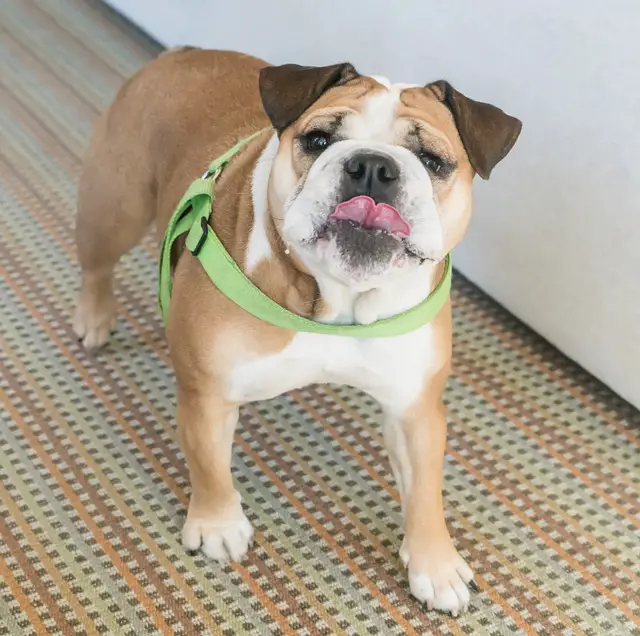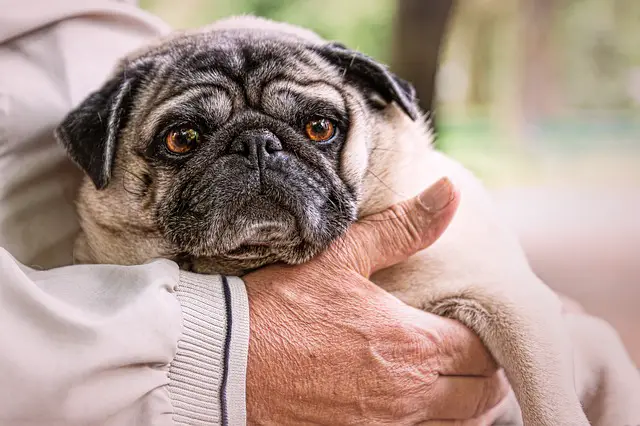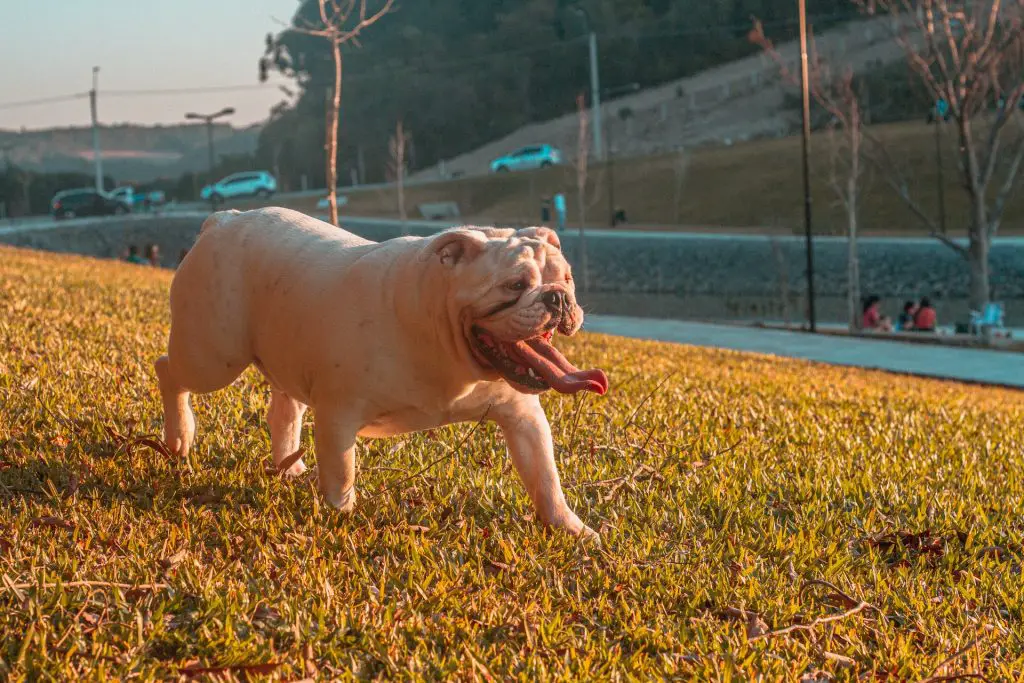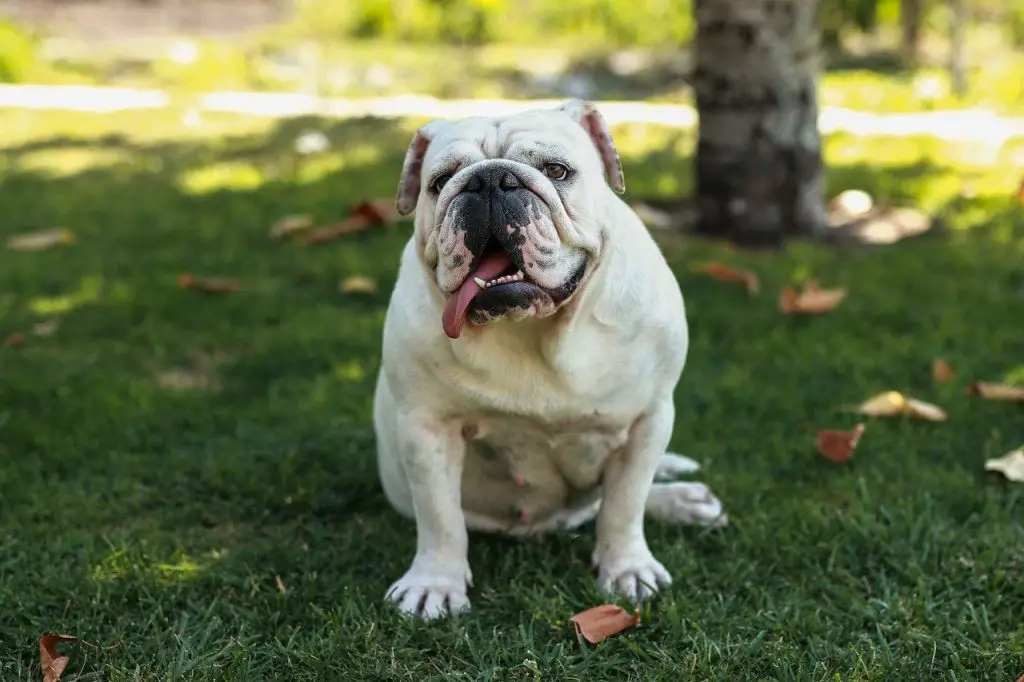When you have a fully housebroken dog and poop balls scattered all over the house, you should be worried. This is a potentially serious situation that requires further investigation.
If your housebroken dog is leaving poop balls around the house, keep reading. This article will explain what to expect in this situation – the causes, the management, and of course, the importance of understanding if your dog is having a medical issue and the poop balls are not its way of protesting or acting up.
There are several reasons why a fully housebroken dog may start leaving poop balls, including bowel incontinence, constipation, and painful physical injury. Each of these causes is serious, and if left untreated, it may progress. Therefore, a trip to the vet’s office is warranted.
Why Is My Dog Leaking Poop?

As mentioned, there are three top reasons why a dog can start leaving little poop balls around the house.
Bowel incontinence
Bowel incontinence is the fancy medical term for lack of bowel control. Bowel incontinence in dogs is a serious and uncomfortable condition.
Bowel incontinence can occur as a result of many issues, including:
- Inflammatory bowel diseases Viral diseases causing uncontrollable diarrhea (canine parvovirus)
- Parasites (long-term diarrhea can cause sphincter damage)
- Hind leg paralysis or debilitation
- Trauma
- Myelopathy (peripheral or degenerative)
- Muscle atrophy
- Anal sac infection
- Perianal fistula
- Spinal tumor
- Myasthenia gravis (neuromuscular disease).
In other words, bowel incontinence occurs when the communication between the brain and the colon is somehow compromised.
A dog with bowel incontinence will show the following signs and symptoms:
- Passing poop while walking, standing, or even sleeping
- Increased gassiness (flatulence)
- Lack of normal anal tone
- Abdominal bloating
- Scooting along hard surfaces
- Inflamed genital area (because of constant soiling).
To determine the underlying cause, the vet will order blood tests, feces analysis, urinalysis, abdominal radiography, and ultrasonography. Based on the findings, the vet can perform some additional tests and procedures.
The treatment depends on the underlying condition. Sometimes, addressing the primary issue eliminates incontinence. In more severe cases, if their muscle or sphincter damage, the vet may prescribe drugs to strengthen the anal sphincter or perform reconstructive surgery.
Once again, based on the circumstances, the vet can recommend physiotherapy, swimming, acupuncture, electro-stimulations, or chiropractic care.
Constipation
Constipation is the inability to pass feces. Constipated dogs are likely to leave little poop balls because releasing small amounts is easier than releasing the entire fecal lump.
Constipation can occur due to many reasons, but the most common are:
- Inadequate diet – lack of fiber or excessive amount of fiber
- Insufficient water intake – dehydration causes dry and hard to pass feces
- Lack of physical activity – sedentary lifestyle can slow down the intestines.
Other, more severe but luckily rare causes of constipation include:
- Dietary indiscretions and blockages (corn cobs, dirt, gravel, cat litter)
- Orthopedic issues in the pelvic area
- Anal sac disorder
- Prostatic disease
- Stress
- Medications with constipation as a side-effect
- Hypothyroidism.
Diagnosing constipation can be a challenging task. The four basic signs of constipation in dogs include:
- Inability to produce poop for more than two days in a row
- Yelping, crying, and difficulties while squatting (dyschezia)
- Dry, hard, and crumbly poop balls
- Blood presence in the stool.
In cases of constipation, here is what you can do at home:
- Offer your dog canned pumpkin – pumpkin is an excellent natural laxative for dogs. Rich in dietary fiber, it is suitable for dealing with both diarrhea and constipation. You can serve the canned pumpkin as a meal or mix it with your dog’s regular food.
- Encourage your dog to drink more water – proper hydration increases the chances of producing healthy poop that can be passed easily. To ensure your dog is drinking enough water, you should place water bowls in various easily accessible locations. To make the water more appealing, you can even enrich it with chicken broth or few tuna juice drops.
- Be physically active – exercise promotes normal intestinal motility. Brisk walks, playing in the dog park, dog-friendly workouts, or light jogging – the type of activity does not matter. The important thing is to keep moving.
These are some first aid tips. If your dog hasn’t relieved itself for more than three days, it is time to take the problem to the next level and go see your trusted vet.
The vet will perform a thorough physical examination. If there is no severe underlying issue, he/she will focus on constipation as the main problem. The vet will apply a laxative, enema, or stool softener based on your dog’s specific situation.
Painful physical injury
A dog feeling pain due to an acute injury or chronic condition is likely to leave poop balls. Sometimes, the injury prevents the dog from moving. When it tries to get out or reach the designated toilet area, it is simply not fast enough.
Another option is that it has a painful condition like arthritis or hip dysplasia. A dog with hip dysplasia will prevent it from squatting. If a dog cannot squat, it will refrain from popping.
However, when the urge to relieve itself surpasses the refraining point, the dog will have “accidents” inside the house.
In cases of injuries and painful conditions, the dog will exhibit various signs. The poop balls will be only one aspect of the complex clinical manifestation.
Dealing with the primary injury and alleviating the pain usually result in normalization of the pooping. The exact course of actions and treatment will be determined by your vet.
Do Old Dogs Lose Control Of Their Bowels?

Yes, bowel control loss is an expected age-related change in dogs. In general, there are three possible reasons why bowel incontinence is common in old dogs:
- Decreased muscle contractility – as dogs age, all of their muscles become weaker, including the muscles that control the anal sphincter.
- Arthritis – old dogs almost always suffer from arthritis. This painful joint inflammation makes it hard for the dog to find a comfortable pooping position. The dog will try to hold for as long as possible, but eventually, it will lose control.
- Dementia – just like in people, dementia is the reason why old dogs act strange. A dog with dementia may lose control of its bowels due to general disorientation or forgetfulness.
Some medications and supplements can help strengthen the muscles and reduce the pain. Still, in the case of dementia, it is management over treatment.
Here are some helpful tips when managing a senior dog with weak bowel control:
- Take your dog on frequent potty breaks, and after each meal
- Protect your home with waterproof covers and puppy pads
- Place toilet stations in several easily accessible places
- Clean the accidents spots with a pet-friendly enzymatic cleaner
- Use doggy diapers
- Wipe your dog’s genital area after each pooping and keep the coat short-trimmed to avoid unnecessary soiling.
My Dog Poops When Excited – Is That Possible?

Yes, strong emotions like excitement and fear can trigger a pooping urge. Even a strenuous activity like excessive barking or prolonged coughing can culminate in a poop ball in some dogs.
This does not mean there is something physically wrong with the dog. Dogs cope with strong emotions differently.
Plus, after more demanding activity, the dog’s body suddenly relaxes. If the anal sphincter relaxes, the poop stored in the rectum will come out.
Can A Dog Poop Out Of Spite?
Imagine the following situation – your dog chews your favorite pair of shoes, and obviously, a bit of scolding was necessary. A few hours later, you find poop balls scattered around the house.
The first thing that comes to mind is the poop balls are your dog’s way of revenge for the scolding. Simply put, your dog pooped out of spite – is this possible?
Well, scientific data on the subject is scarce. Still, scientists believe dogs are not good at processing complex emotions, and spite is definitely complicated.
So, the answer would be no, dogs cannot poop out of spite. If you had a misunderstanding and then your dog pooped inside the house, there are two possible scenarios:
- Your dog’s house training is not as foolproof as you thought
- Your dog has an underlying medical issue that requires further investigation.
Anyway, spite and revenge are not on your dog’s to-do list.
Is Bowel Incontinence A Reason To Put A Dog Down?

Poor bowel control is not an objective reason to put a dog down. You can manage most underlying conditions resulting in bowel incontinence.
So, unless the dog is in severe pain or its quality of life is progressively deteriorating, euthanasia is not an option.
However, if the condition behind the incontinence is a terminal illness, then you can consider euthanasia.
Each case is different, and it would be best if you made the final decision per your vet’s opinion and prognosis.
Conclusion
A dog leaving little poop balls is a dog that needs prompt veterinary attention (Same for yellow balls in your dogs poop). Some of the conditions that cause this problem are minor and even self-limiting. However, others are painful and can trigger further complications unless adequately managed.
If you find a poop ball around the house, do not panic. Evaluate the overall situation. If your dog seems fine and is drinking, eating, and active, pay closer attention and observe how the situation develops.
On the other hand, if there are additional red flags in your dog behavior, call your trusted vet and schedule an appointment. The sooner your vet diagnoses the problem and initiated treatment, the sooner your dog will stop leaving you poop ball surprises.
FAQs
Why does my dog get so happy after he poops?
Defecating, same as urinating, is a territory marking method. So, when a dog poops at a particular place, it is pretty much like claiming the territory.
Can bowel incontinence be corrected?
Yes, in most cases, bowel incontinence is a treatable condition. The exact correction method depends on the underlying problem.
What is a natural laxative for dogs?
Canned pumpkin is the ideal home remedy for a constipated dog. It is high in dietary fiber, promoting intestinal motility and water, which adds moisture to the dry stool.
Can arthritis cause poop accidents?
Yes, any painful condition may result in poop or pee accidents. A dog with arthritis simply cannot get into the correct pooping position because of the pain. Your dog will hold it, but when the pressure becomes unbearable, accidents will occur.

